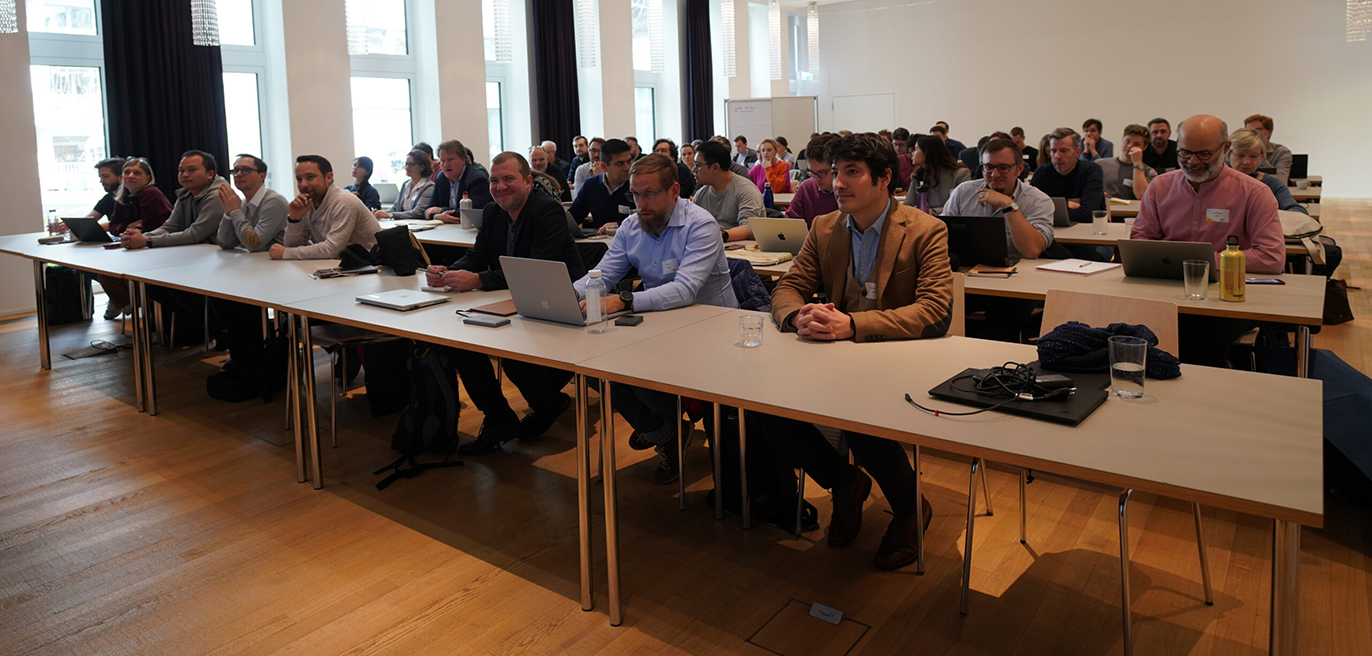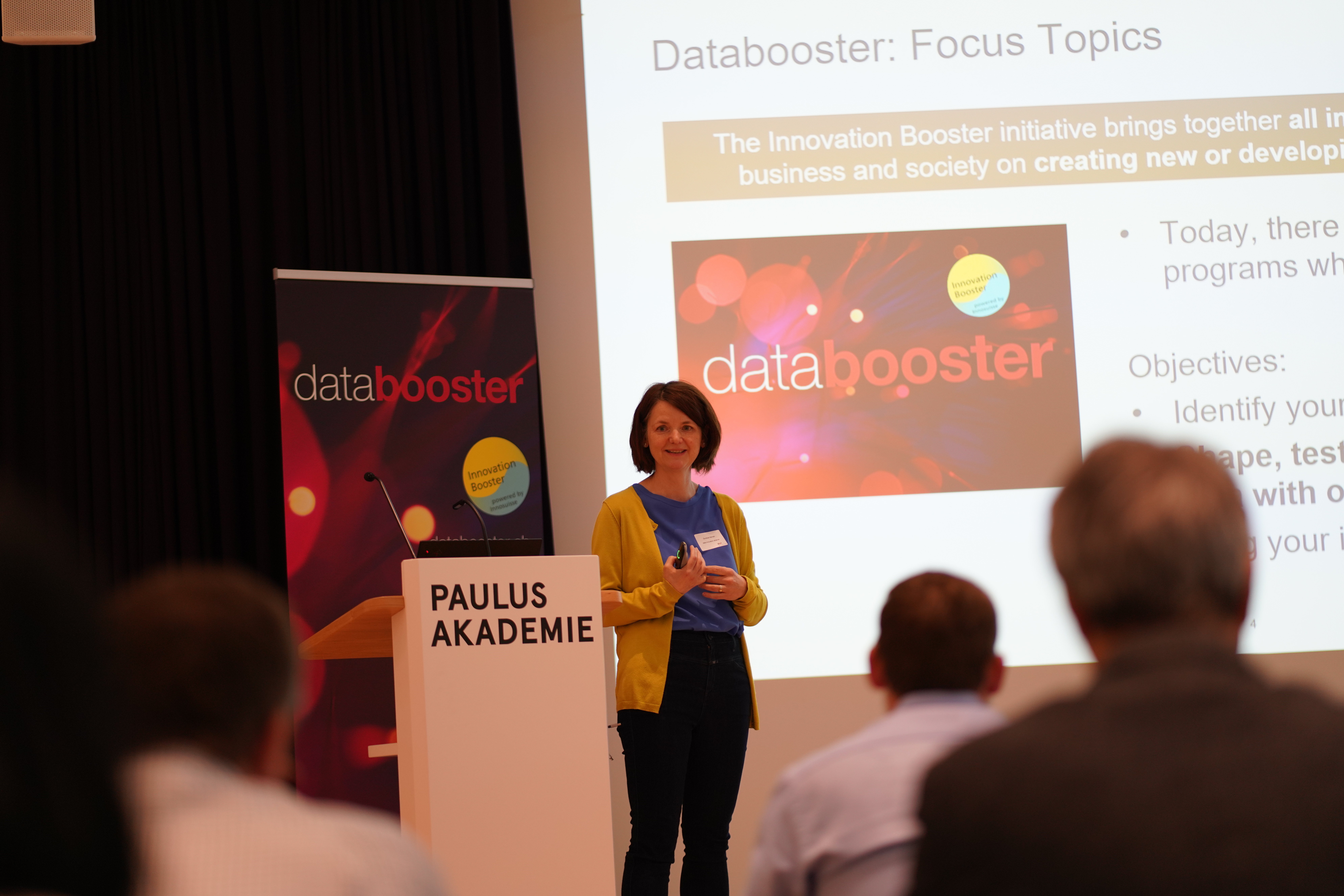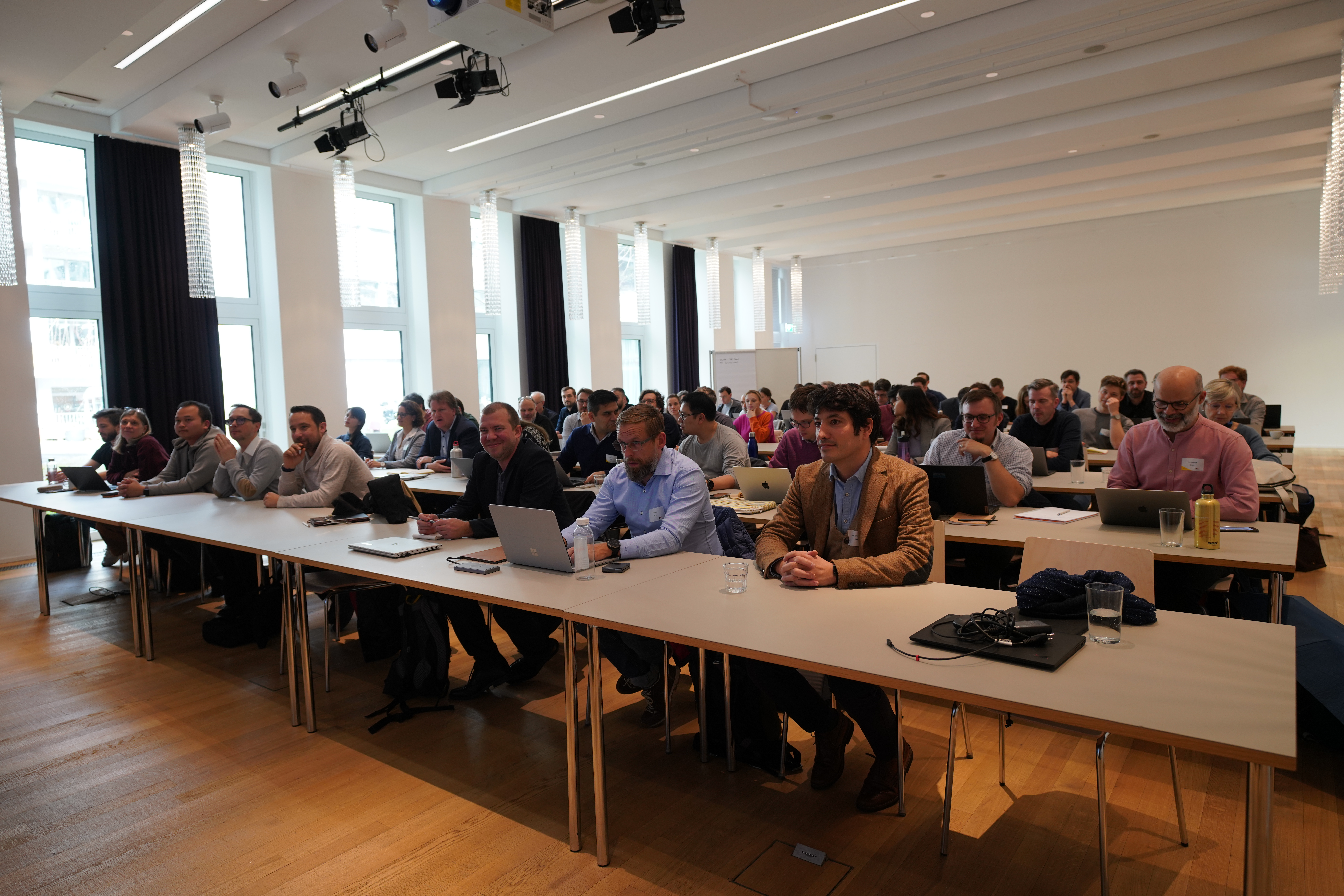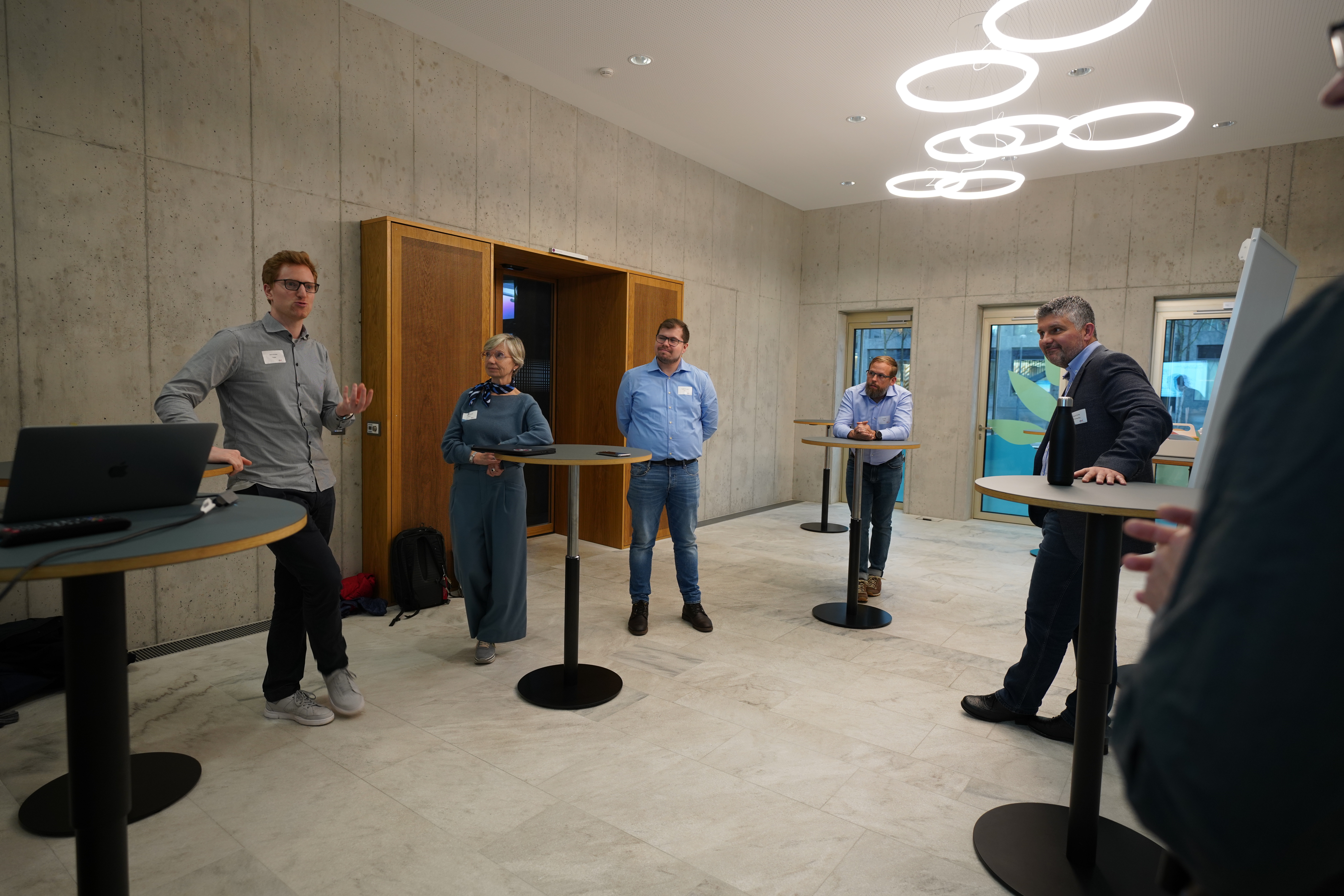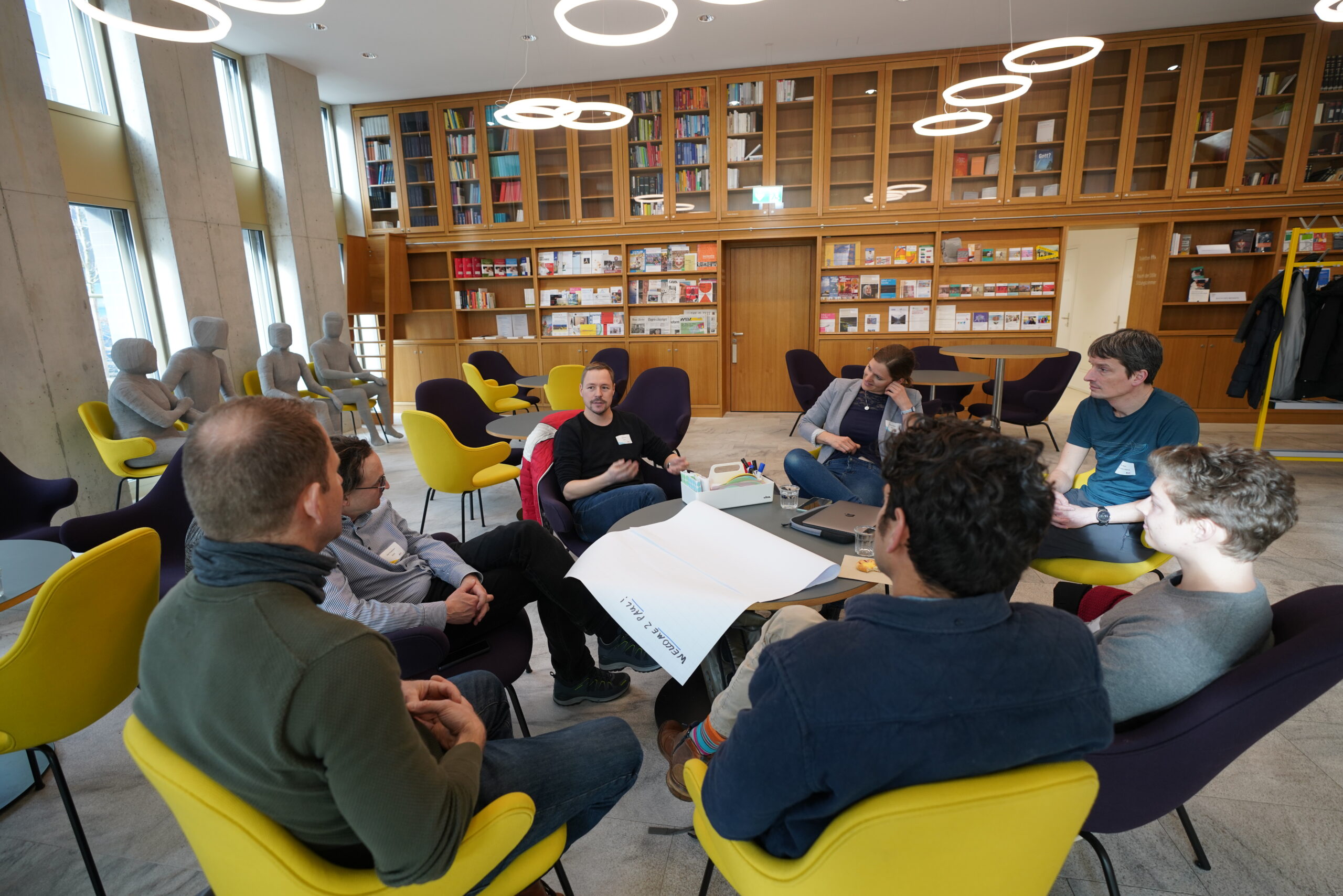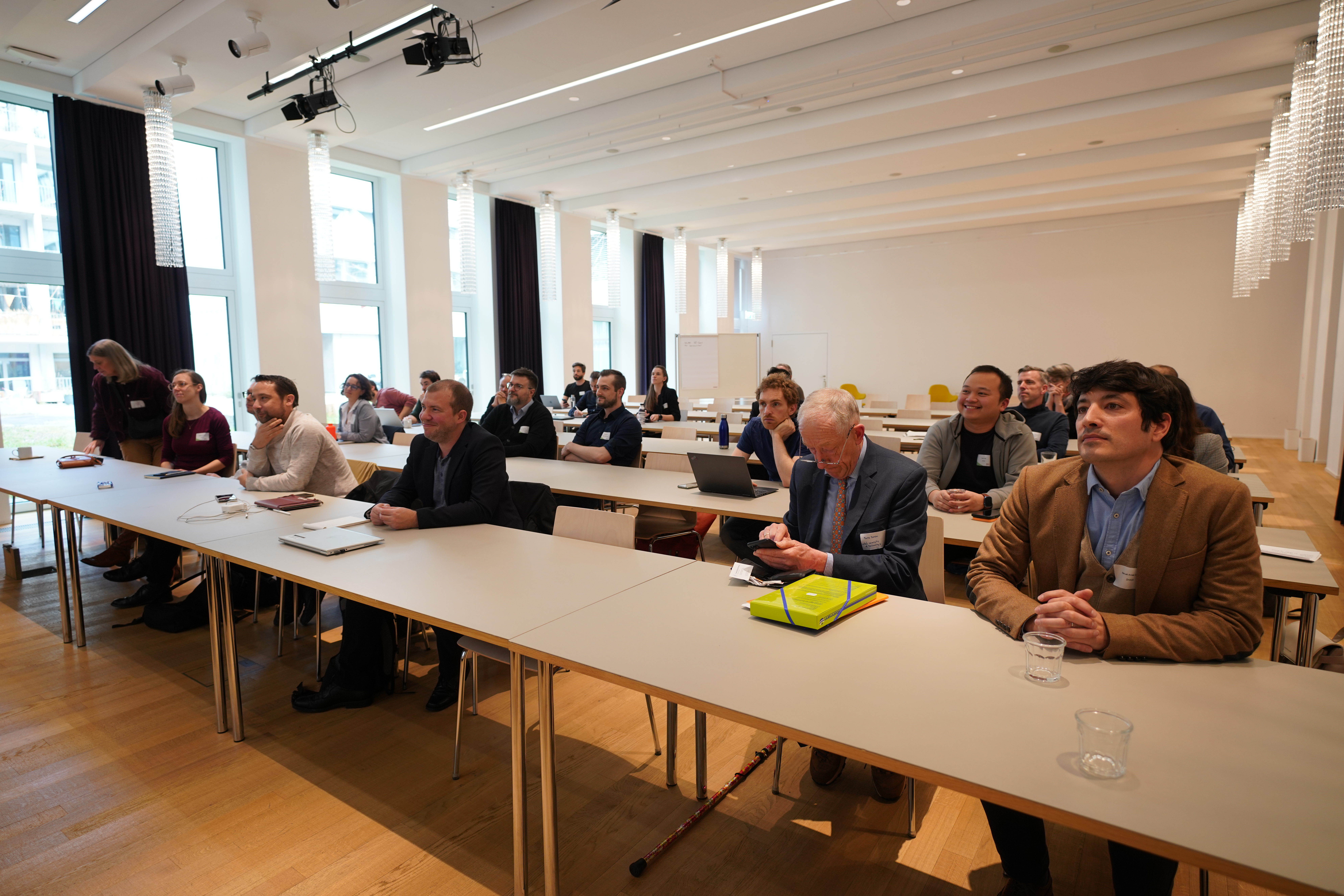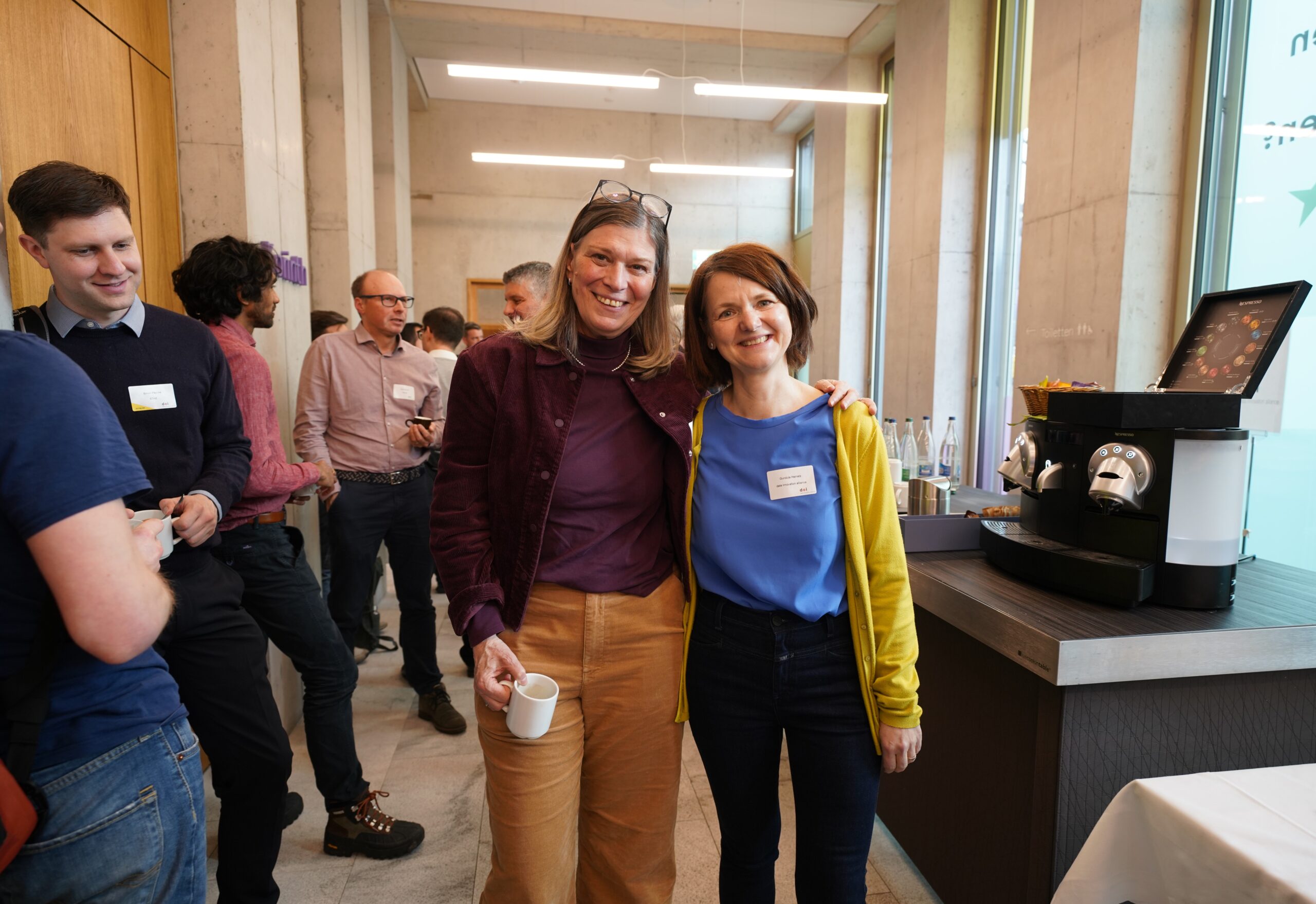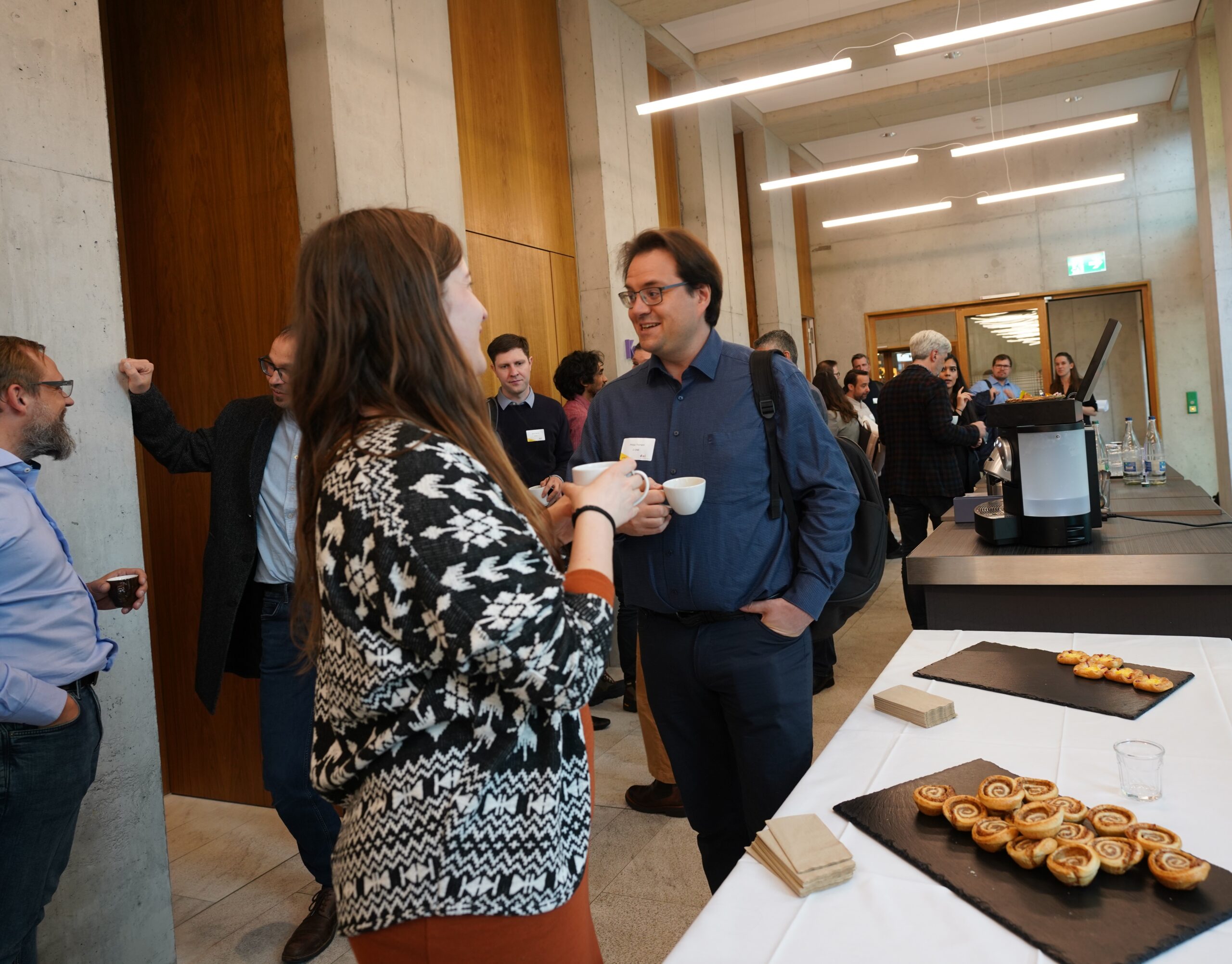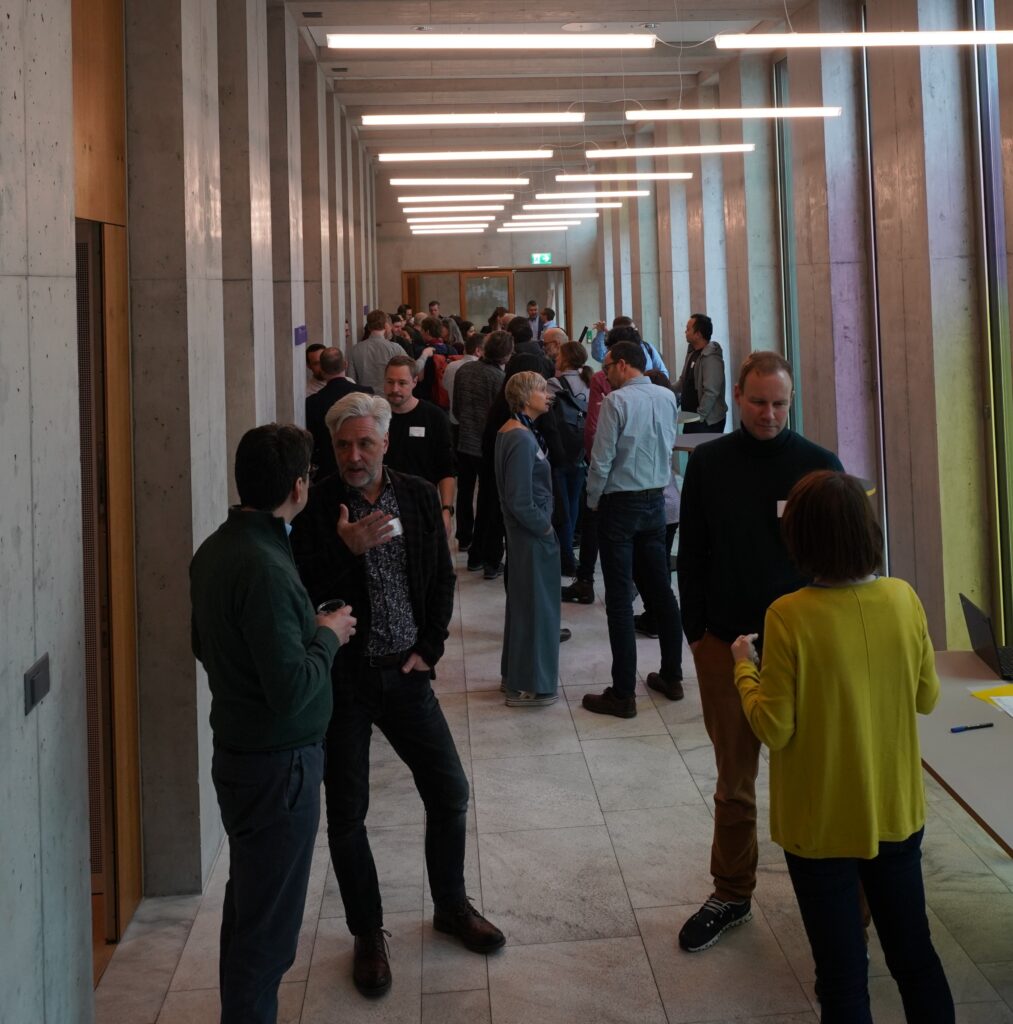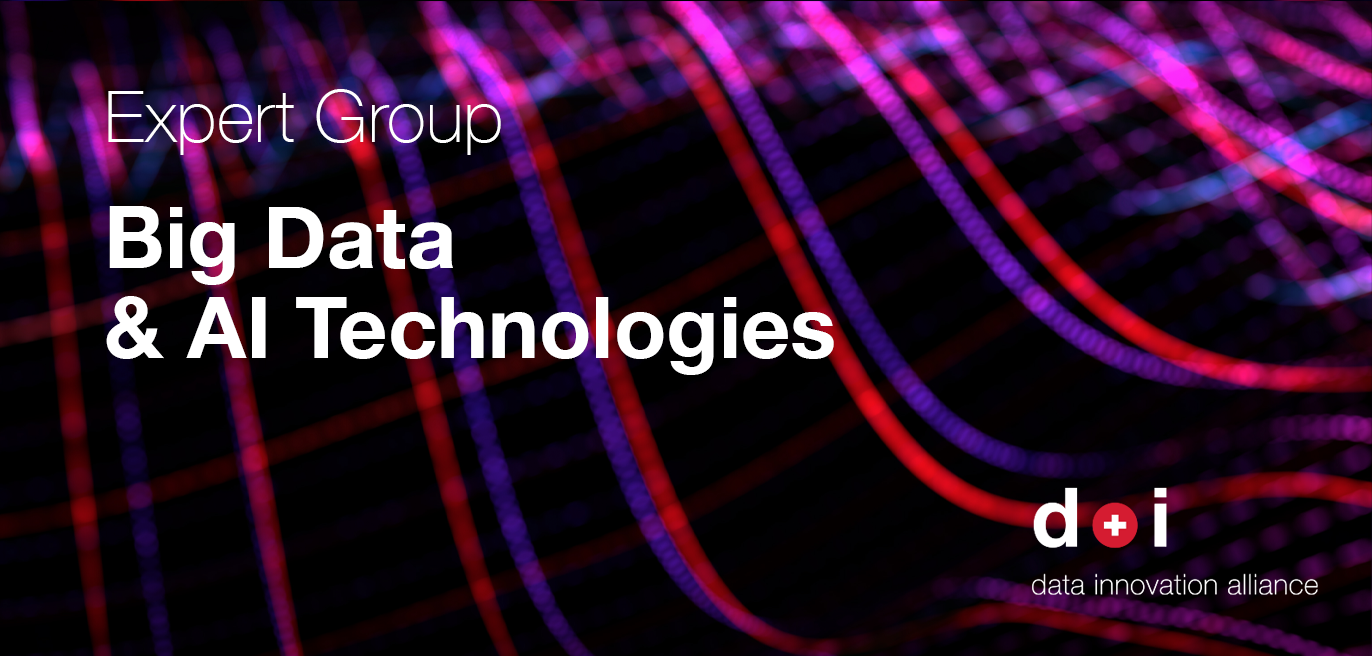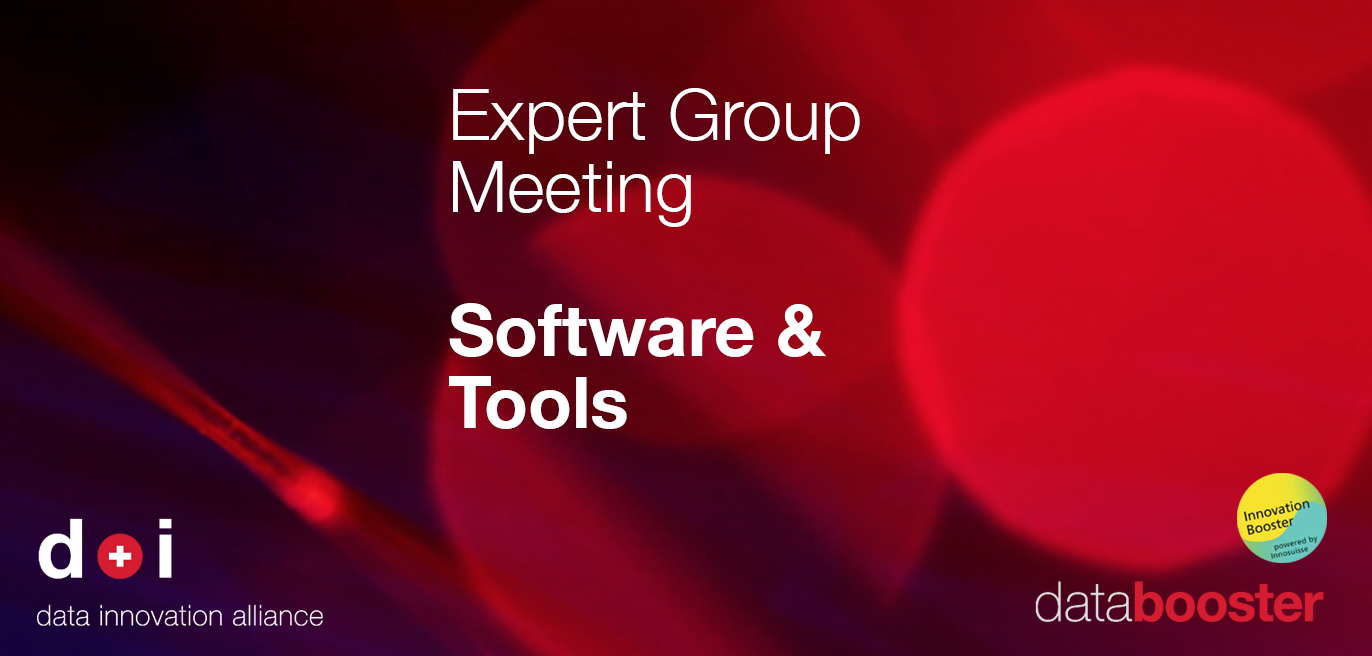Expert Day
Selected expert groups from the data innovation alliance will present themselves at this half-day event. Current projects, trends and potential collaborations will be presented, discussed and worked on in interactive sessions.
Location
FHNW Campus Brugg-Windisch, 100m from Brugg station
Bahnhofstrasse 6, 5210 Windisch, Room 5.0A52
https://maps.app.goo.gl/SZdfXaTgGWbSvyvn7
| 13:30 | Welcome & Registration |
| 14:00 | Welcome speech by FHNW: Eyes on Human-Data Interaction by Prof. Dr. Arzu Çöltekin, FHNW |
| 14:15 | Keynote Lessons learned on scaling after 1 year of GenAI by Dr. Marcin Pietrzyk, co-founder and CEO of Unit8 |
| 14:45 | Expert Group Break-out (1) |
| 15:30 | Coffee Break |
| 16:00 | Expert Group Break-out (2) |
| 17:00 | Apéro |
| 17:45 | Closing |
Prof. Dr. Arzu Çöltekin, FHNW

Arzu Çöltekin is a professor of Human-Computer Interaction, Visualization and Extended Reality, and leads the Institute of Interactive Technologies at the University of Applied Sciences and Arts Northwestern Switzerland. She is also a research affiliate at the Seamless Astronomy group in the Harvard-Smithsonian Center for Astrophysics of the Harvard University in Cambridge, USA, collaborating on scientific data analysis and visualization research. She chairs the international Extended Reality and Visual Analytics working group with the ISPRS; co-chairs the Commission on Geovisualization with the ICA, and is a council member with the International Society of Digital Earth (ISDE). Her interdisciplinary work covers topics related to information science, visual analytics, visualization and cartography, virtual/augmented reality, gaze-contingent displays, eye-tracking, vision (perception and cognition), and human-computer interaction.
Part 1: Predictive Maintenance @ABB: a Technology Company’s Point of View

Kai Hencken is Corporate Research Fellow for “Physical and Statistical Modeling” at the ABB Corporate Research Center, Baden-Dättwil, Switzerland. He holds a Ph.D. and a habilitation in theoretical physics from the university of Basel, where he is currently a lecturer. He joined the ABB Corporate Research Center in Baden-Dättwil in 2005 as a member of the theoretical physics group. His research interests are the combination of physical modeling, data analytics, and statistical methods to solve problems related to industrial devices. He works predominantly on developing diagnostics and prognostics approaches for different products, covering the range from sensors and signal processing to mathematical methods in prognostics.
Predictive Maintenance is one of the main application areas of the Industrial Internet of Things. The wide deployment of sensors and their connectivity allows to collect big amounts of data from devices in the field. The exponential increase of computing power and the recent developments in data analytics and machine learning makes the application of advanced algorithms possible. We are also facing changes in the way maintenance work is done and how its importance is seen.
ABB is a technology company providing devices and solutions in the area of electrification and automation. Many of their offerings in the area of digitalization and specifically predictive maintenance are geared towards their own products. This leads to topics that are specific for these cases in addition to the common ones.
In my talk I will discuss some of these issues and how they can be addressed: The domain knowledge and the simulation capabilities within the company are one of the big assets of any manufacturer. Reusing this for predictive maintenance solutions is an important aspect. For highly reliable products failure data will remain scarce even for a large installed base. This is a major bottleneck for any data-driven approach and needs to be overcome. The focus of many solutions developed is to provide monitoring and diagnostics capabilities. The prognostics aspect and the proposal of actions to be taken to remedy potential problems are often more important for the final customer. Examples are taken predominantly from electrification and motion devices.
Part 2: Discussion of combining physics and domain knowledge with AI for intelligent maintenance and operation
- 14:45 – 14:55 – Intro and introductions
- 14:55 – 15:30 – Presentation: Nicole Königstein, Chief Data Scientist, Head of AI & Quant Research, Wyden Capital AG: “Financial Times Series Prediction in the Age of Transformers”+ Open discussion and Q&A
- 15:30 – 16:00 – Break
- 16:00 – 16:30 – Presentation: Guillaume Raille, Engagement Director & Data Scientist at Unit8 SA: “LLMs beyond Chatbots: Unveiling the challenges of advanced LLM applications based on a real-world use cases“+ Open discussion and Q&A
- 16:30 – 17:00 – Discussion on topics that might be relevant for the DIA in the future and how to organize
In the field of environmental monitoring, artificial intelligence (AI) coupled with probability maps emerges as a powerful tool for comprehensively understanding and managing ecological systems. By harnessing machine learning algorithms, intricate patterns within environmental datasets can be discerned with unprecedented accuracy. Based on this understanding, probability maps can be calculated to offer valuable insights into the likelihood of various environmental events. These maps serve as crucial decision-making aids for policymakers, conservationists, and researchers alike, enabling proactive measures to mitigate ecological threats and promote sustainable practices.
Schedule:
- 14:45 – 14:55 – Intro and introductions (Dr. László István Etesi, Prof. Gerd Simons – FHNW)
- 14:55 – 15:30 – Probability Maps: Current research & applications in the field of environmental monitoring
- 15:30 – 16:00 – Break
- 16:00 – 16:30 – Indicate challenges around robust multi-sensor & multi-scale data integration and harmonization
- 16:30 – 17:00 – Discussion on ideas which can be further evaluated in the frame of the Innovation Booster
14:45 – 15:30
1. Growing with Data and AI, dealing with Governance. Introduction to the objectives of the new Expert Group in planning (Philipp Kuntschik, adesso Schweiz AG & Dr. Sarah Seyr, HSLU)
2. Transparency and Privacy for Data Governance – Can we have both? (Dr. Omran Ayob, SUPSI)
3. AI Maturity Framework (Frank Seifert, adesso Schweiz AG)
15:30 – 16:00 – Break
16:00 – 17:00
Maintaining integrity along the Data and AI value chain (interactive session):
– Explore data governance practices from data collection to data protection.
– Discuss algorithmic health and management of AI systems.
– Engage in user-centered communication and transparency strategies.

